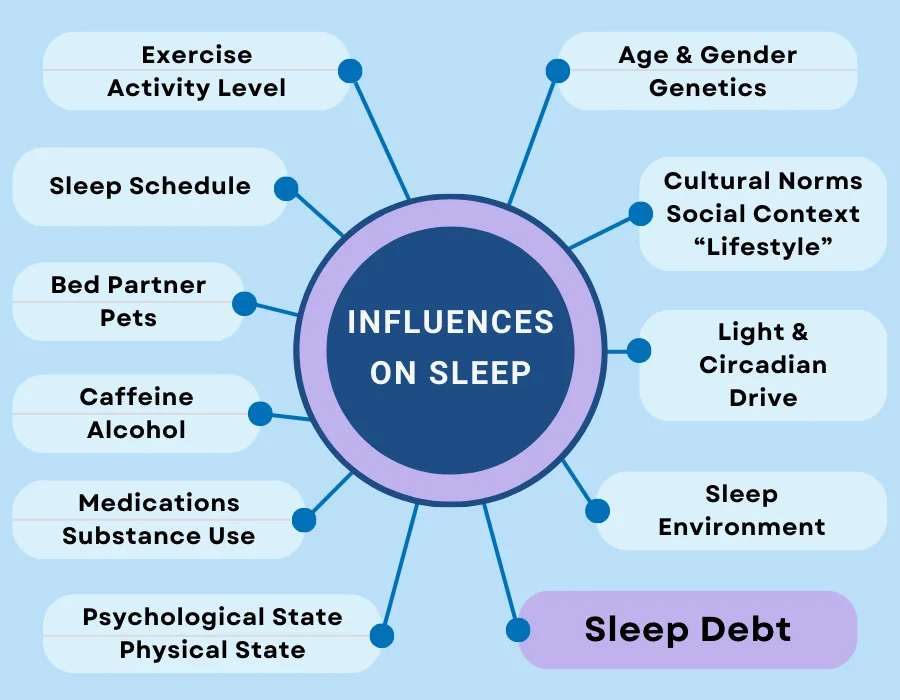Unlike “credit card debt”, “sleep debt” is about what you owe yourself!
How do you get into sleep debt?

Sleep debt builds as you get insufficient sleep to support your health, well-being and performance over multiple nights.
How does this happen?
Some of us are balancing multiple jobs and responsibilities, including family needs; this may lead to limited time for needed sleep. We may be trying to sleep in noisy environments or sharing space with family members or roommates on different schedules that disturb us.
Human sleep is most efficient and restorative when daily sleep timing is consistent. Travel, trying to adapt to changed time zones, can make sleep especially difficult. The term ” jet lag” is used to describe the experience of fatigue and deficit in functioning that can accompany travel. As the time for sleep may be insufficient and the sleep schedule may be dramatically altered, sleep debt builds. Even without actual travel, limited sleep and lack of consistency in sleep times, are common for many of us. Shift work may require changing work and sleep schedules, including sleeping during daylight and working at night, against the natural rhythms evolved for daylight activity and sleep during darkness. Leisure activities, especially late nights over weekends as compared with weekday schedules, can produce a similar sleep deficit, called “social jet lag”. Timing and amount of intake of coffee and alcohol, and even some medications can impact the quality of sleep. When we have multiple nights of inadequate sleep without “catching up” we fall into sleep debt.
Can you “bank sleep?”
Unfortunately, you can’t sleep for a week and then have reserves for a week of work, travel, or partying. You can, though, be sure you are caught up on sleep, not carrying “sleep debt”.
When you anticipate a period of extra waking requirements in your schedule it is wise to begin as fully rested.
Some adjustments in your behavior and environment can improve your sleep opportunities. These include avoiding light from your computer screen and phone an hour or more before bed. Screen light is known to be alerting. Many of us feel tired and then take a “ last look” for messages before bed and then feel awake again. Caffeine, the alerting chemical in coffee and energy drinks, is known to have a half-life of around six hours. This means if you have coffee at six in the evening, half is still in your system at midnight, potentially interfering with your sleep. While many of us feel alcohol makes us drowsy and helps us fall asleep, we may not be aware that alcohol can have a rebound effect damaging sleep later in the night. Beer drinkers may complain that they wake up repeatedly to visit the bathroom!
The team at Sleep Wave wants to encourage our users to take all steps to improve their sleep and pay back sleep debt, enhancing sleep environments and behaviors that support health and well-being. We are well aware that real life does not always allow for the self-care and behavior that supports sufficient sleep. We also know that scientific evidence shows that as we get older, we may sleep less deeply and efficiently, even with adequate time in bed.
Sleep Wave system supports deep restorative sleep through a patented system that is imperceptible to the sleeping user (Learn More).

Article written by:
Jo M. Solet, PhD
Scientific Advisor, Kunasan Inc
Assistant Professor, Harvard Medical School
